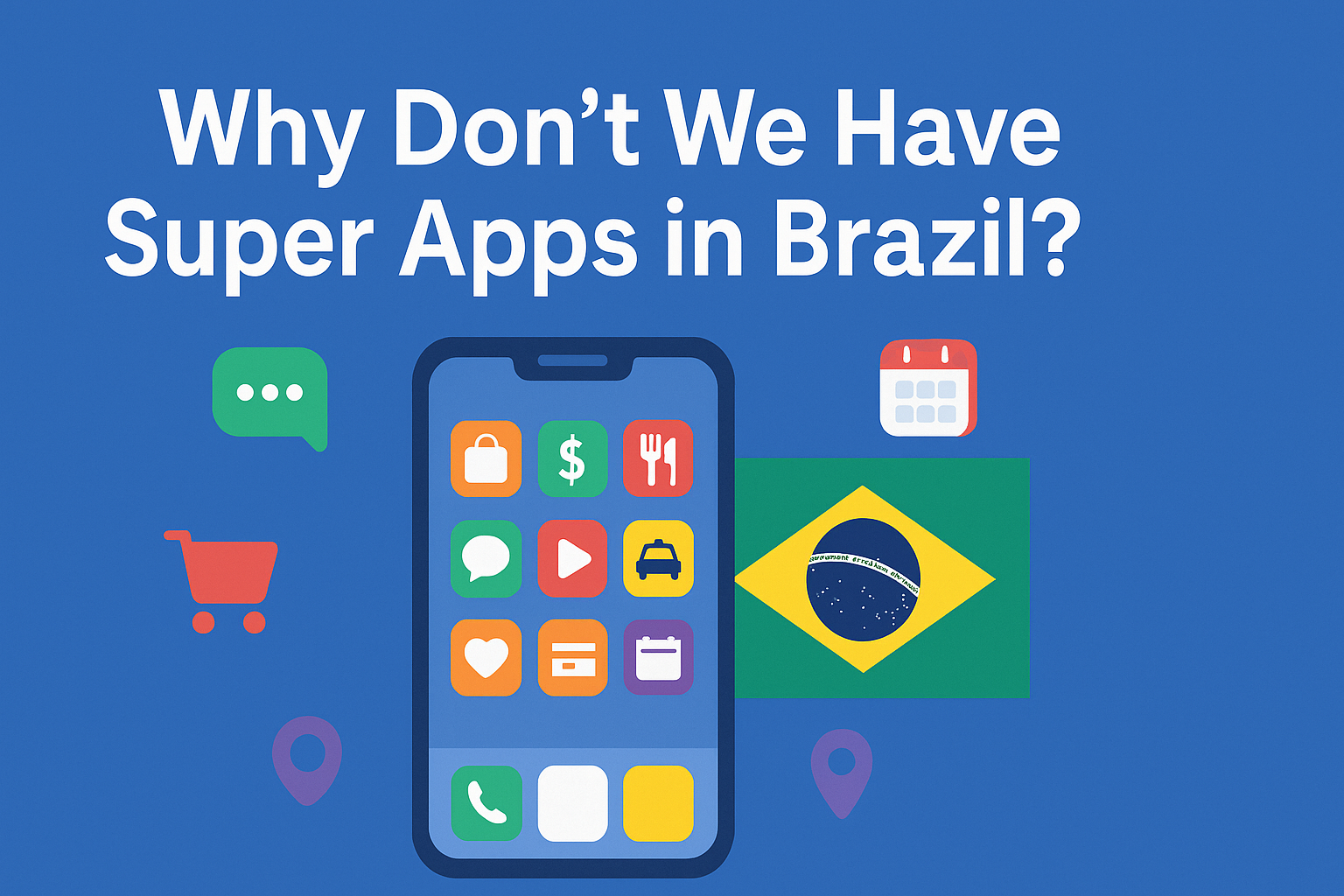Why Don’t We Have Super Apps in Brazil?
- 12 de outubro de 2025

There was a time when “Super App” was the big buzzword in Brazil, you know, that idea of having one app to do it all. Well, in China, that’s not hype, it’s everyday life. While we’re still debating whether Rappi is or isn’t a super app, the Chinese are paying for the bus, ordering food, booking hotels, and even filing taxes without leaving the same app. All inside WeChat or Alipay.
But what most people don’t know is how this actually works. Unlike Brazilian companies, who keep trying to stuff more and more features into their apps, the secret in China isn’t about cramming everything together. It’s about Mini Apps, small third-party apps that live inside the super app, like tiny shops inside a digital mall.
No downloads, no new accounts, no switching screens.
Want a coffee? Mini App from the café. Need a ride? Mini App from DiDi. Want to pay bills, book a doctor, or buy tickets? There’s a Mini App for that too. And it all happens inside a platform that already knows who you are, where you live, and which card you’ll use. Convenient? Absolutely. A bit Black Mirror? Also yes.
In China, a super app isn’t just an app on steroids, it’s a well-built ecosystem. It has a clear business model, open technology, a smooth UX, and partners who actually play as a team. It’s the classic win-win scenario, and that’s why it works.
China skipped the desktop phase and was born mobile-first. No Google, WhatsApp, or Facebook. WeChat became practically the country’s digital ID. QR code payments were the norm before they became a trend. And both government and private companies opened APIs and made integrations easy.
Combine all that with a culture less obsessed with privacy, and you get an ecosystem where the app is almost an extension of real life. Meanwhile, here in Brazil… the story’s a bit different.
Every company wants to be the market leader. On top of that, regulation is tough, we’ve got LGPD, the Central Bank, CADE. If an app starts doing too much, it becomes a target. The market is fragmented, with hundreds of apps competing in transport, banking, delivery even parking. And the Brazilian user? Already used to the chaos.
At the end of the day, we adapted to our own microapp ecosystem. One app to order food, another to get a ride, another to check your balance, another to buy movie tickets, another for your doctor’s appointment… Habit won over convenience.
And here’s the irony, it’s not like we lack technology. In banking and payments, we’ve got Open Finance, Pix, and open APIs ready to go. The only thing missing is alignment and of course, someone willing to share the controller.
There’s another thing, Brazil’s market is so competitive that everyone already has their own throne. The app that rules food, the one that dominates retail, the one that owns finance… trying to put all that in a single app would be like building a condo where every neighbor wants to be the manager.
What’s left for us is the Brazilian-style super app. Maybe the future of super apps here isn’t a single app at all, but a network of experiences that connect each doing its thing, but communicating properly. Kind of like a smart condo, everyone takes care of their own house, but the street is shared.
In the end a true super app isn’t about putting everything in one place. It’s about building an ecosystem where everyone wins the user, the company, the developer, and yes, even the government.
For now everyone still wants to be the super. Maybe once the market matures and partnerships get smarter, things will move forward.
Until then, we’ll keep juggling 47 apps on our phones… and still forget where we saved the condo bill.
Digital life goes on…